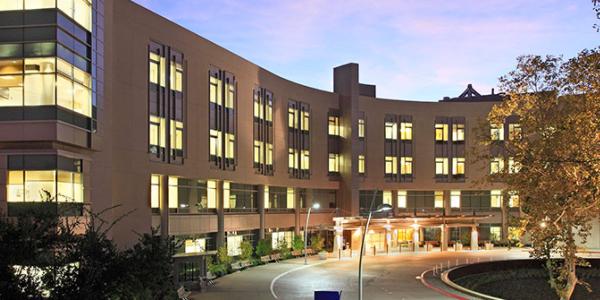
Mountain View, CA - March 21, 2013 - A study conducted at the South Asian Heart Center at El Camino Hospital in Mountain View, California, and the Palo Alto Medical Foundation showed that providing culturally competent coaching to South Asian patients may be an effective way to reduce their risk for developing coronary artery disease. The findings were presented as a poster at the American Heart Association Epidemiology and Prevention/Nutrition, Physical Activity and Metabolism Conference taking place in New Orleans.
"Coronary artery disease affects the South Asian Community four times more than the general population, even for lifelong vegetarians who do not smoke and are not overweight," said Powell Jose, MD, Division of Patient Outcomes and Clinical Research, Palo Alto Medical Foundation Research Institute, and poster presenter. “Diet and lifestyle counseling had not been previously validated in the South Asian population, which makes these results even more encouraging as we continue to address this community’s increased risk for coronary artery disease.”
The study examined 703 patients at the South Asian Heart Center who opted to enroll in the Heart Health Coaching program and were either partially coached (n=145) or fully coached (n=558) for an entire year. A third group (n=33) consisted of patients who did not participate in the program. The level of coaching was dependent on participant receptivity to phone calls or e-mails from trained volunteers throughout the year who provided culturally competent health education on diet, physical activity and stress reduction. To measure the physical impact of the coaching, fasting lipids were obtained and measured with mean differences calculated from baseline and the last available follow-up lab test.
Study results showed that in the fully coached group, there were significant improvements (p<0.001 for all) in total cholesterol (TC) (-5.5±28.4mg/dl); LDL (-4.1±24.3); HDL (1.9±6.4); triglycerides(-16.1±67.3); and TC/HDL ratio(-0.31±0.83). The partially coached group demonstrated reductions in total cholesterol (-5.2±27.8, p=0.03); LDL (-8.1±28.0mg/dl, p<0.001); and TC/HDL ratio (-0.42±1.01, p<0.001) with a trend towards increased HDL (4.9±31.3, p=0.06). Non-coached participants did not have any statistically significant differences for any lipid measurement. There were also no significant differences in mean age (43, 42 and 43), mean BMI (25.8, 26.5 and 26.2), or baseline lipid values across the three groups (completers, partial completers, and non-completers, respectively).
"From a clinical standpoint, for every 1 mg decrease in LDL, there is a 2 percent decrease in that person’s risk of a cardiovascular event, which further emphasizes the importance of the coaching," said César Molina, MD, FACC, founder and medical director of the South Asian Heart Center at El Camino Hospital. "Physicians have limited time to provide patients with this type of detailed follow-through, so coaching can prove to be an effective resource for them to achieve improved outcomes in their patients."
A secondary analysis examined lipid values and BMI in 492 South Asian participants (21.7% women) who completed the program with a comparison control consisting of South Asians with no prior exposure to the South Asian Heart Center or the coaching program, created using electronic health record data from a healthcare organization within the same geographic region. The analysis showed that baseline characteristics were similar, yet for those who participated in the coaching program, there was an improvement in the lipid profile and BMI, with significant reductions in total cholesterol (-2.33mg/dL, p=0.001); LDL (-1.45 mg/dL, p=0.04); HDL (1.16, mg/dL, p<0.0001); Triglycerides (-9.61, p=0.002); TC/HDL ratio(-0.15, p<0.0001); and BMI (-0.12, p=0.005) versus those who had never come into contact with the program or the Center.
"Study results showed that even partial coaching could have health benefit for patients, as seen with improved total cholesterol and LDL levels," said Ashish Mathur, executive director, South Asian Heart Center at El Camino Hospital. "Our heart health coaches are non-medically trained volunteers who monitor and motivate over phone and email, making this a cost-effective method for risk reduction in a vulnerable population. We hope to use these findings to enhance our own coaching program and provide guidance to other communities facing similar challenges, not just in California, but nationally and across the world."
About the South Asian Heart Center
The South Asian Heart Center at El Camino Hospital is the first major non-profit devoted to combating the growing epidemic of heart disease among people from Bangladesh, India, Pakistan, Nepal, and Sri Lanka through a unique preventative program. Offered at a minimal, subsidized cost, the Center assesses the risk for heart disease and diabetes using an advanced screening process that keys in on risk factors specific to this population, and helps participants manage and mitigate their risk through education, nutrition counseling, lifestyle recommendations, and case-managed follow-up.
About El Camino Hospital
El Camino Hospital is an acute-care, 443-bed, nonprofit and locally governed organization with campuses in Mountain View and Los Gatos, Calif. In addition to state-of-the-art emergency departments, key medical specialties include heart and vascular, cancer care, urology, orthopedic and spine, genomic medicine, and the only Women’s Hospital in Northern California. The hospital is recognized as a national leader in the use of health information technology and wireless communications, and has been awarded the Gold Seal of Approval from The Joint Commission as a Primary Stroke Center as well as back-to-back ANCC Magnet Recognitions for Nursing Care.
About Palo Alto Medical Foundation
The Palo Alto Medical Foundation for Health Care, Research and Education (PAMF) is a not-for-profit health care organization dedicated to enhancing the health of people in our communities. PAMF is part of the Peninsula Coastal Region of Sutter Health, one of the nation's leading not-for-profit networks of community-based health care providers. PAMF's 1,100 affiliated physicians and 4,300 employees serve approximately 800,000 patients at its medical centers and clinics in Alameda, San Mateo, Santa Clara and Santa Cruz counties. For more information, visit: https://www.sutterhealth.org. Find PAMF on Twitter and Facebook.